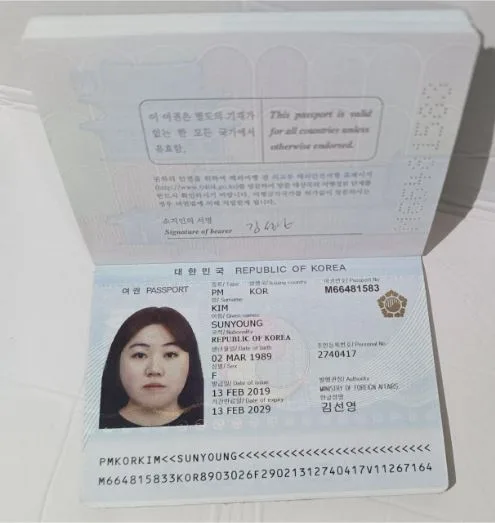How to Start Online Singing Lessons as an Adult with Zero Experience
Have you always dreamed of singing but thought it was too late to start? Maybe you’ve hummed your favorite tunes in the shower or belted out songs in the car, but never had the chance or the courage to take it seriously. Good news: it’s never too late to begin your singing journey, even if you have zero experience.
In fact, thanks to digital platforms, online singing lessons for adults have made vocal training more accessible, flexible, and personalized than ever before.
No matter if you’re 30 or 60, you can still develop your voice, grow your confidence, and enjoy the rewarding journey of learning to sing. Here’s a complete beginner’s guide to help you take the first step without feeling overwhelmed.
1. Believe It’s Never Too Late
A common misconception about learning to sing is that it has to begin in childhood. Not true. The adult brain is capable of learning new skills, especially creative ones when guided by the right approach. Many adults find they progress even faster because they bring focus, discipline, and motivation to the table.
So, if you’re feeling hesitant because of your age or lack of experience, drop those doubts now. Your voice is an instrument, and it can be trained at any stage of life.
2. Get Clear on Your “Why”
Before diving into lessons, take a moment to reflect:
Why do you want to learn singing?
- Is it to perform someday?
- Do you want to reduce stress and feel more confident?
- Maybe you just love music and want to sing better for personal joy.
Understanding your motivation will help you stay consistent, choose the right program, and track progress that matters to you.
3. Choose the Right Online Platform
Not all singing platforms are created equal. As an adult beginner, you need a course that:
- Caters specifically to adults (not child-centric)
- Provides clear, beginner-friendly content
- Offers structured lessons with progress tracking
- Includes real-time feedback, if possible
Some platforms provide live 1:1 coaching, while others offer video-based self-paced lessons. If you’re shy or need flexibility, a pre-recorded course may suit you better. If you want accountability and real-time guidance, go for live lessons with a professional vocal coach.
Look for platforms or teachers that showcase credentials, student testimonials, and trial classes. This builds trust and helps you make a more informed decision.
4. Start with the Basics: Breathing and Posture
Your voice starts with your body. Every beginner, no matter their age, must learn the fundamentals:
- Breathing: Breath control is everything in singing. Learning diaphragmatic breathing (breathing from your belly) helps you sustain notes and sing effortlessly.
- Posture: Proper singing posture helps support your lungs and vocal cords for better vocal performance. Stand tall, shoulders relaxed, chin level.
Don’t rush this step. Even 5–10 minutes of daily breathing exercises can significantly improve your singing foundation over time.
5. Practice Consistently – Not Perfectly
As a beginner, the biggest key to success is consistency. You don’t need to practice for hours every day, just 20 minutes a day, 3–5 times a week, is enough to build vocal muscle and gain confidence.
Remember, progress over perfection.
Even if your voice cracks or you feel unsure, keep going. Regular practice helps train your ear, strengthen your vocal cords, and boost your memory for pitch and melody.
6. Record Yourself (Even if You Cringe)
It might feel uncomfortable at first, but recording yourself is one of the fastest ways to improve. Listening back helps you notice things like:
- Pitch accuracy
- Breath control
- Tone quality
- Timing
You don’t need professional equipment, your phone works just fine. Over time, you’ll hear real progress, and that can be incredibly motivating.
7. Warm Up Before Every Session
Your vocal cords are muscles, and like any workout, you need to warm them up. Simple warm-ups like humming, lip trills, or sirens help loosen your voice and prevent strain.
A good warm-up routine might include:
- 5 minutes of breathing exercises
- 5 minutes of vocal warm-ups (scales, hums, lip rolls)
This creates the foundation for a successful and strain-free practice session.
8. Be Patient with Yourself
Learning to sing as an adult is as much about mindset as it is about technique. You may not sound like your favorite artist right away and that’s okay.
Everyone has a unique voice, and it takes time to discover yours. Celebrate small wins, like hitting a high note for the first time or singing through an entire song without stopping.
The more you enjoy the process, the more progress you’ll make.
9. Find a Community or Support System
Even though you’re learning online, you don’t have to do it alone. Join online communities, Facebook groups, or forums for adult singers. Connecting with others on the same journey can provide encouragement, feedback, and tips.
Some online singing programs include community access, virtual recitals, or group classes which are great for staying inspired.
10. Invest in a Good Vocal Coach (Optional but Powerful)
If you’re ready to take your voice to the next level, consider working with a private online vocal coach. They’ll give you personalized guidance, correct bad habits early, and tailor exercises to your goals.
Many adults find that even just one or two private sessions can create major breakthroughs in their singing.
Final Thoughts: Your Voice Deserves to Be Heard
Starting singing lessons as an adult might feel intimidating, but it’s also deeply rewarding. You’re giving yourself the chance to grow, express, and connect through music.
With the right mindset, platform, and consistent practice, you’ll be amazed at what your voice can do even with zero experience.
So don’t wait. Pick your first song, take a deep breath, and start your journey today.




